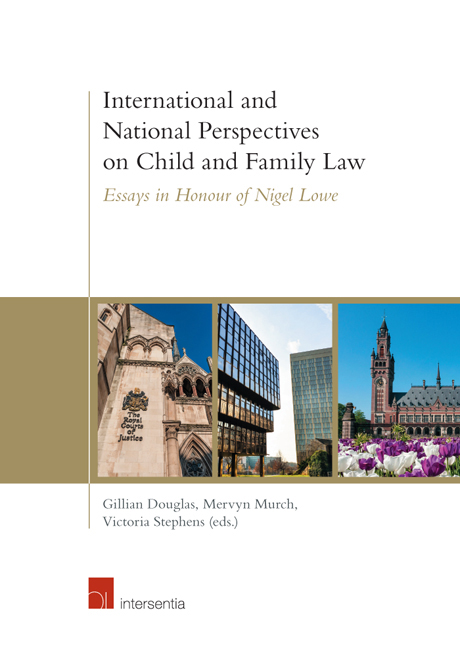Book contents
- Frontmatter
- Foreword
- Acknowledgements
- Contents
- List of Cases
- List of Contributors
- Introduction: Nigel Vaughan Lowe: An Appreciation
- Part I Family and Child Law in England and Wales
- The Supreme Court and Family Law
- The Development of Parent–Child Relationships in Family Law: The Cascade of Change
- Commitment-Based Parenting: Parental Responsibility in English Law
- Rights Children Should Not Have
- Empirical Research on Adoption of Children from Care
- Pathways to Adoption: From Long and Winding Road to Obstacle Course?
- Child Abuse and Public Inquiry Methodologies
- Lowe and the Inherent Jurisdiction
- Wards of Court
- Part II International Family Law
- Part III The Future for Family and Child Law
Child Abuse and Public Inquiry Methodologies
from Part I - Family and Child Law in England and Wales
Published online by Cambridge University Press: 12 October 2018
- Frontmatter
- Foreword
- Acknowledgements
- Contents
- List of Cases
- List of Contributors
- Introduction: Nigel Vaughan Lowe: An Appreciation
- Part I Family and Child Law in England and Wales
- The Supreme Court and Family Law
- The Development of Parent–Child Relationships in Family Law: The Cascade of Change
- Commitment-Based Parenting: Parental Responsibility in English Law
- Rights Children Should Not Have
- Empirical Research on Adoption of Children from Care
- Pathways to Adoption: From Long and Winding Road to Obstacle Course?
- Child Abuse and Public Inquiry Methodologies
- Lowe and the Inherent Jurisdiction
- Wards of Court
- Part II International Family Law
- Part III The Future for Family and Child Law
Summary
INTRODUCTION
Over the last 45 years, from the Maria Colwell inquiry to the current ongoing Independent Inquiry into Child Sexual Abuse (IICSA), public inquiries have assisted in the complex task of investigating and reporting on particular community and institutional cases of child abuse. They have contributed much to an increased public awareness of the nature and need for effective child protection services. But the record of public inquiries in this area is troublesome. Some commentators have pointed out the damaging effect that they can have on the social work and other caring professions engaged in this challenging work. Criticisms are also raised in relation to the poor implementation of inquiry recommendations and the delays and costs of inquiry processes. Above all, over the years, a consensus appears to have emerged that many of the ‘lessons learned’ have not been actioned, either at all or sufficiently. There have been repeated observations in inquiry reports of identical failings and weaknesses in child protection work that just seem to continue in the narratives from one inquiry to the next.
This chapter reviews the changing policy context and methodologies employed by public inquiries in this field and raises two important propositions for further consideration: first, that the ongoing IICSA inquiry provides an unprecedented opportunity to capture and disseminate fully and more deeply the emerging knowledge of the nature and impact of child abuse; secondly, that there is now a significant need to establish a permanent centralised unit in the UK – a Public Inquiries Office – as an independent non-departmental public body to support and maintain public inquiries in the child protection sector, and elsewhere.
THE DEVELOPMENT OF PUBLIC INQUIRIES INTO CHILD ABUSE
Both the number and scope of public inquiries that have examined the phenomenon of child abuse have increased since the landmark Maria Colwell inquiry. If one counts the main forms of statutory and non-statutory inquiries, there have been around 80 such inquiries since Colwell.
Although there had been some inquiries into child abuse issues before, the Colwell inquiry did much to sensitise the public and professionals to the emerging and extensive problem of physical cruelty and neglect experienced by some children living in the community with parents and other carers. It also provided, arguably, a revision of society's assumptions about the ‘blood tie’ between children and their natural parents.
- Type
- Chapter
- Information
- International and National Perspectives on Child and Family LawEssays in Honour of Nigel Lowe, pp. 97 - 110Publisher: IntersentiaPrint publication year: 2018



